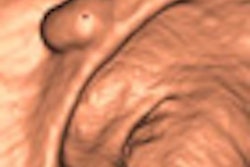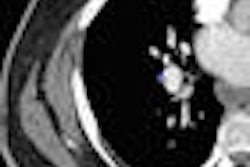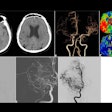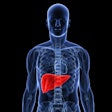Dear AuntMinnie Member,
It's the equivalent of a Hail Mary pass in the battle over Medicare reimbursement for virtual colonoscopy screening. A new study published this week finds that VC is slightly more cost-effective than the gold standard, optical colonoscopy, for colorectal cancer screening in some situations.
The study, published online in the American Journal of Roentgenology, addresses a key shortcoming in VC evidence that was raised during a February review of the technology by a committee of the U.S. Centers for Medicare and Medicaid Services (CMS). Staff writer Eric Barnes discusses the study in an article in our Virtual Colonoscopy Digital Community.
What gave VC the edge in the older Medicare population modeled for the study? Combining the virtual technique with abdominal aortic aneurysm (AAA) screening using the same CT dataset, according to the research team led by University of Wisconsin VC expert Dr. Perry Pickhardt.
Will the study be enough to dissuade CMS from rejecting reimbursement for VC screening? No one knows, but you can learn more about the study by clicking here.
In other news in the community, optical colonoscopy suffered a black eye this week with the news that clinicians at Veterans Affairs hospitals were reusing colonoscopes without properly disinfecting them. That story is available by clicking here or by visiting the community at vc.auntminnie.com.
CAD helps novice CT readers
In news in our Advanced Visualization Digital Community, U.S. researchers have found that computer-aided detection (CAD) software can help novice radiologists find signs of pulmonary embolism on CT scans.
In the study, a research team from the Medical University of South Carolina in Charleston used a prototype CAD algorithm to help guide inexperienced radiologists in interpreting CT studies. Use of the software nearly doubled the sensitivity of the readers and reduced the number of false negatives by a third. Read more by clicking here.
In another article, Spanish researchers looked at the factors that can affect CAD's performance in mammography; they found that their algorithm performed better in women with fatty breasts as opposed to those with dense breasts. That story is available by clicking here.
Get these stories and more news on advanced visualization by visiting the community at av.auntminnie.com.




















